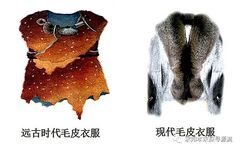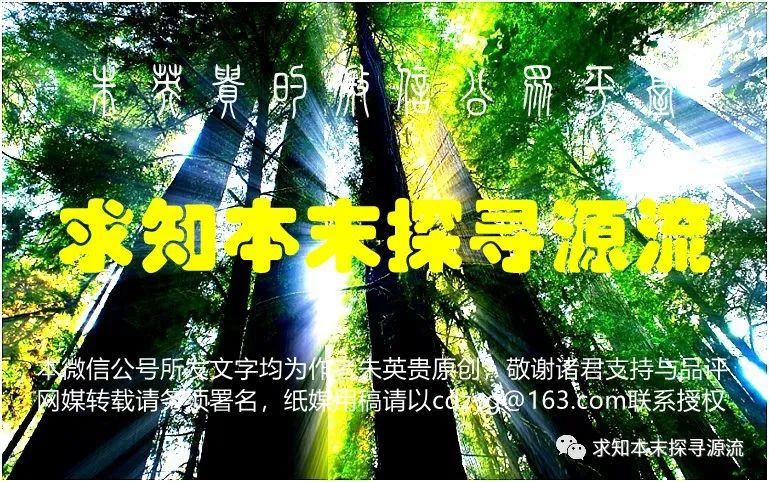
This article contains approximately4600words, reading time is about9minutes
This account updates on even days, please follow us
Tracing the Origins of Chinese Characters
(201)
Light Fur and Its Inner Meaning—Discussing “Fur” and “Surface”
(Part One)
Author: Zhu Yinggui
The previous article discussed the character “Dai” (带), which is part of the idiom “light fur and loose belt” (轻裘缓带), referring to a light and warm fur coat and a loose belt, used to describe a calm and composed attitude. The “Dai” in “light fur and loose belt” has been discussed, and this article continues with the character “Qiu” (裘) in “light fur.” In fact, “Qiu” is a later character, originally derived from the character “Qiu” (求).
Related to the character “Qiu” (裘) is the character “Biao” (表), which in modern usage refers to the surface or exterior. However, “Biao” also refers to clothing similar to “Qiu,” but it emphasizes the fur on the outside of the clothing rather than the clothing itself. Therefore, after discussing the character “Qiu,” we will also explore the relationship between the meanings of “Qiu” and “Biao,” starting with the character “Qiu.”

1. Interpretation of the Character “Qiu (裘)” and Its Original Meaning
There is an idiom “Meng Mei Yi Qiu” (梦寐以求), where the character “Qiu” is used in its modern sense, meaning to pursue or desire. It implies a longing that persists even in dreams. However, the original meaning of “Qiu” is a noun representing an object, specifically a fur coat. The oracle bone script and bronze inscriptions depict the appearance of such clothing (see the image below).
 Evolution of the character “Qiu (裘)” and its etymology
Evolution of the character “Qiu (裘)” and its etymology
The oracle bone script for “Qiu (裘)” has two forms, both pictographs representing clothing made of fur. One resembles the shape of a top garment, with fur on the outside (as shown in the second oracle bone script form), while the other depicts fluffy fur without outlining the garment (as shown in the first oracle bone script form).
The bronze inscriptions also have two forms, directly inheriting from the oracle bone script, with the latter form adding a phonetic component “You” (又), becoming a phonetic compound character.
The small seal script and ancient script of “Shuo Wen Jie Zi” (说文解字) preserve both forms of the character “Qiu (裘).” The large seal script in “Shuo Wen Jie Zi” essentially inherits from the previous oracle bone and bronze forms, while the small seal script outlines the latter bronze form, placing the character “Yi” (衣) on the outside, and combining “Mao” (毛) and “You” (又) to form the character “Qiu” within the character “Yi.” In modern Chinese, “Qiu” is written above “Yi,” forming a compound character with an upper and lower structure, used as a noun. The independent pictograph “Qiu” has evolved from the ancient script to serve as a verb meaning to seek in broader contexts.
According to “Shuo Wen Jie Zi,” Volume 8, the section on “Qiu”: “Qiu, fur coat. From Yi (衣) and Qiu (求) phonetic. One interpretation is pictographic, with the same meaning as “Shuai.” All items related to Qiu are derived from Qiu.” Xu Shen’s explanation (“fur coat”) is correct, indicating that the original meaning of “Qiu” refers to a fur coat. “Shuo Wen” also interprets it as a phonetic compound character based on the small seal script, which is reasonable, but Xu Shen also states, “One interpretation is pictographic, with the same meaning as ‘Shuai,’” which is somewhat biased. According to “Shuo Wen, Clothing Section,” “Shuai” refers to a raincoat made of grass. This indicates that in Xu Shen’s time, there was a viewpoint that “Qiu” was not a fur coat but a raincoat, which is a significant divergence. Based on the oracle bone script, the original meaning of “Qiu” (求) should be a fur coat.
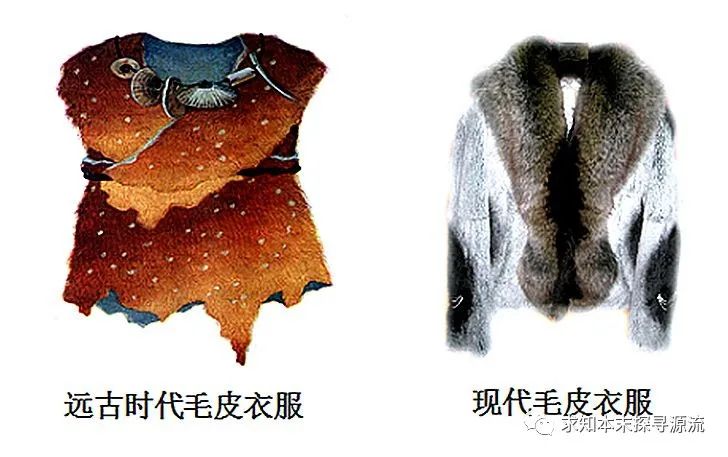
2. Evolution of the Meaning of “Qiu (裘)”
The original meaning of “Qiu” is a fur coat, which is the original form of “裘” (古字). For example: “Qiu, ancient form of 裘.” (《说文·裘部》) Duan Yucai notes: “This is the ancient form of 裘, later adding Yi to become 裘, while Qiu is used specifically for requests.” This noun meaning was already written as “裘” during the Spring and Autumn period, for example: “Those in the capital wear fox fur coats” (《诗·小雅·都人士》) and “On one day, I hunted a raccoon to make a coat for the young master” (《诗·豳风·七月》). Additionally, in “Mencius, Wan Zhang,” it mentions “Le Zheng Qiu,” while in “Han Shu, Ancient and Modern People’s List,” it is written as “Le Zheng Qiu.”
These furs used to make clothing must be obtained through hunting, hence “Qiu” can also mean to seek or search, for example: “Qiu, to seek.” (《玉篇》) Another example: “The call of the birds, seeking their friends’ voices” (《诗·小雅·伐木》) and “Those who know me say I am worried, while those who do not know me ask what I seek” (《诗·王风·黍离》).
The motivation for seeking or searching is either “to want to obtain” or “to find a way to obtain.” Thus, the character “Qiu” has developed the following direct and indirect extended meanings:
Firstly, along the line of “finding a way to obtain,” the direct extended meaning is to indicate exploration and inquiry. For example: “The road is long and distant, I will seek and explore” (屈原《离骚》) and “I am not born with knowledge, but I am diligent in seeking the ancient” (《论语•述而》) and “To seek the origin, deeply unknown” (《旧唐书•礼仪志七》) and “Initially serving as an envoy, there were no stays in the north, I wish to seek a strategy for national salvation” (宋·文天祥《〈指南录〉后序》).
From this, several indirect extended meanings arise:
One is to indicate to obtain or receive. For example: “If one is rich and can be sought, even a coachman, I would do it” (《论语•述而》) and “The sage uses things as if using red silk to tie a straw dog, or as if making a clay dragon to seek rain; the straw dog waits for blessings, and the clay dragon waits for food” (《淮南子•说山训》). Gao You notes: “Qiu is equivalent to obtain.”
Two is to indicate to choose or select. For example: “When making a cart, do not seek a good day; when tailoring clothes, only seek an auspicious day, what the common people value is to lose the essence” (汉·王充《论衡•讥日》) and “At that time, Fu Jian was strong, and the borders were frequently invaded, the court sought good civil and military generals to defend the north” (《晋书•谢玄传》).
Three is to indicate to summon or attract. For example: “To express concern, seek goodness” (《礼记•学记》). Zheng Xuan notes: “Qiu means to summon.” Another example: “Now the country is idle, and at this time, the people are lazy, this is self-seeking disaster” (《孟子•公孙丑上》) and “To dwell with thieves, unaware of the disaster, and to seek grievances from outside, is like treating a serious illness while neglecting the heart” (汉·赵晔《吴越春秋•夫差内传》).
Four is to indicate to visit or inquire. For example: “Thus, I sought the grandson of King Huai of Chu, who was a shepherd, and established him as King Huai of Chu, fulfilling the people’s expectations” (《史记•项羽本纪》) and “I have lived on a boat for nine years, going back and forth seeking what makes a furnace, but found nothing” (唐·柳宗元《永州铁炉步志》) and “Your Majesty initially ascended the throne, did not seek the people’s grievances, but hastily imposed great labor, fearing to lose the people’s expectations” (《续资治通鉴•元英宗至治元年》).
Five is to indicate finally or ultimately. For example: “I think of the virtues of the ancient kings, to bring peace to the people” (《书·康诰》). Sun Xingyan explains: “Qiu means to end… I think of the virtues of the ancient kings to bring peace to the people, to ultimately achieve the way of the ancient kings.” Another example: “The king is matched in the capital, the virtue of the world is to be sought” (《诗·大雅·下武》). Zheng Xuan notes: “Qiu means to end. The king matched the way of the three queens in Haojing, as his virtue accumulated over generations, to ultimately achieve great accomplishments.”
Secondly, along the line of wanting to obtain, the direct extended meaning is to indicate to request or beg. For example: “It is not I who seek the young, but the young who seek me” (《易·蒙》) and “Upon entering the court, I sought the prime minister to inspect the left minister’s affairs” (《新唐书•马璘传》) and “Zhong Yong was five years old, never learned to write, suddenly cried out to seek it” (宋·王安石《伤仲永》), and in modern terms: seeking help, seeking advice, seeking medical assistance, etc.
From this, several indirect extended meanings arise:
One is to indicate to pursue or seek. For example: “To seek peace, to observe success” (《诗·大雅·文王有声》) and “If you seek, you will obtain; if you abandon, you will lose” (《孟子·告子上》) and “Thus, the gentleman thinks of propriety when moving, and thinks of righteousness when acting, not for profit, nor for righteousness. Some seek fame and do not obtain it, or wish to cover it and seek fame, punishing the unjust” (《左传·昭公三十一年》) and “To seek beauty, one does not obtain beauty; not seeking beauty, beauty is achieved” (《淮南子•说山训》).
Two is to indicate to covet or desire. For example: “Not resentful, not seeking, why not be good” (《诗·邶风·雄雉》). Zhu Xi’s commentary states: “Qiu means to covet.” Another example: “To hinder others’ progress is resentful, while to hinder one’s own progress is to seek” (清·恽敬《雄雉说》).
Three is to indicate to demand or require. For example: “Alas, protect the barrier, when will it spring, what else to seek?” (《诗·周颂·臣工》) and “I am young and inexperienced, inheriting a great cause, dressed in fine clothes and eating well, what more could I want?” (《元史•英宗纪》) and “He only seeks to live peacefully and happily celebrate his birthday” (老舍《四世同堂》十四).
Four is to indicate to blame or demand. For example: “The gentleman seeks from himself, the petty person seeks from others” (《论语·卫灵公》). He Yan’s commentary states: “The gentleman blames himself, the petty person blames others.” Another example: “Liu Xuanming is the foundation of the country, while Lu Cheng criticizes Kang Cheng’s annotations, which are reasonable, why must one seek others?” (唐玄宗《〈孝经〉序》). Xing Bing’s commentary states: “Qiu means to blame.”
Five is to indicate to inquire or ask. For example: “Xi Peng’s character is to aspire above and seek below” (《吕氏春秋•贵公》). Gao You’s commentary states: “Qiu means to ask.”
Based on the above analysis of the evolution of the meaning of “Qiu (裘),” the development of the meaning of the character “Qiu (裘)” can be summarized as follows (the horizontal and vertical lines in the diagram indicate the chronological evolution of meanings):
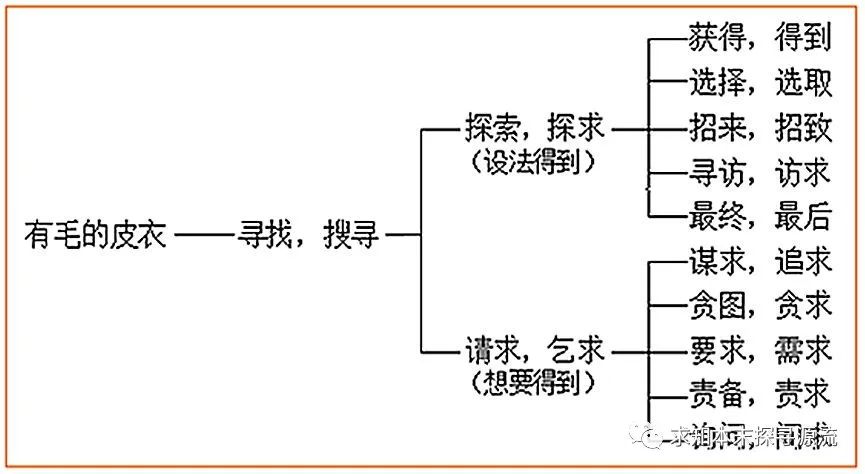
3. A Brief Discussion on “Meng Mei Yi Qiu”
The idiom “Meng Mei Yi Qiu” means to pursue even in dreams, describing a strong desire. “Meng Mei Yi Qiu” originates from the first work of the Book of Songs, “Guan Ju”:
“The calls of the ju birds, on the river islet.”
“The graceful and virtuous lady, is the good match for the gentleman.”
“The uneven water plants, drift left and right.”
“The graceful and virtuous lady, I seek her in wake and dream.”
“Unable to seek her, I think of her in wake and dream.”
“Oh, how I turn and toss.”
“The uneven water plants, drift left and right to gather.”
“The graceful and virtuous lady, I play music to befriend her.”
“The uneven water plants, drift left and right to pluck.”
“The graceful and virtuous lady, I play drums to please her.”
The paraphrase is:
“The calls of the ju birds,
Playfully frolicking on the river islet.”
“That beautiful and virtuous lady,
Is the good match for the gentleman.”
Drift left and right.”
I seek her in wake and dream.”
I think of her day and night.”
Turning and tossing, unable to sleep.”
Drift left and right to gather.”
I play music to befriend her.”
Drift left and right to pluck.”
I play drums to please her.”
In essence, “Guan Ju” simply describes a gentleman’s “Meng Mei Yi Qiu” for a virtuous lady, expressing his distress when he cannot obtain her, tossing and turning sleepless; when he finally obtains the “virtuous lady,” he is very happy, calling for music to celebrate, thus making the “virtuous lady” joyful. The character “gentleman” in the poem refers to noble men in ancient times, not commoners, thus this poem is not a “folk love song,” but a love poem of the upper class. The scenes depicted in the poem, the ju birds and water plants are merely metaphors, while “playing music to befriend” and “playing drums to please” are the real tools conveying the love between men and women. This indicates that this is a ceremonial and practical song at a noble wedding, used by the groom’s family to praise the bride and wish for a beautiful marriage, from “the graceful and virtuous lady, is the good match for the gentleman,” to “playing music to befriend” and “playing drums to please,” all create a joyful and harmonious atmosphere. Of course, from the emotional structure of the poem, it still appears in the form of a love song of a man pursuing a woman, recounting the gentleman’s journey from seeing the ju birds to thinking of the virtuous lady, to forming a bond, depicting the gentleman’s “turning and tossing” and “Meng Mei Yi Qiu” in the process of pursuing the virtuous lady, lamenting that it is particularly precious to obtain, and then in a joyful atmosphere of music, their feelings draw closer, and a happy marriage begins, bringing great joy.
“Meng Mei Yi Qiu” is the source of the later idiom “Meng Mei Yi Qiu,” meaning that “Meng Mei Yi Qiu” evolved from the phrase “Meng Mei Yi Qiu” in the Book of Songs. It describes a man who encounters a beautiful girl by the river, and after returning home, he thinks of her day and night, “Meng Mei Yi Qiu,” meaning he is constantly thinking about how to seek the beautiful girl and establish a good relationship with her. Eventually, his strong and urgent desire becomes a beautiful and happy reality.
Of course, “Meng Mei Yi Qiu” is merely the source of the idiom “Meng Mei Yi Qiu,” while the true origin of “Meng Mei Yi Qiu” comes from an anonymous work of the Song Dynasty, “Xian Chun Yi Shi”: “I am burdened by the rich and beautiful, looking around, not without talented individuals, indeed selected by the late emperor to fulfill the legacy, if not for dreaming and seeking, the valley would be empty.” In the Ming Dynasty, there is also a phrase by Gui Youguang in “Eulogy for Zhang Zhen Nu”: “How could the divine officials, due to dreaming and seeking, take shape; the young girl, sitting in the public court, distinguishing her appearance; indeed, the common resentment of the people, truly difficult to escape from the heavenly net.” Among them, “due to dreaming and seeking” can also be seen as a variation of “Meng Mei Yi Qiu.”
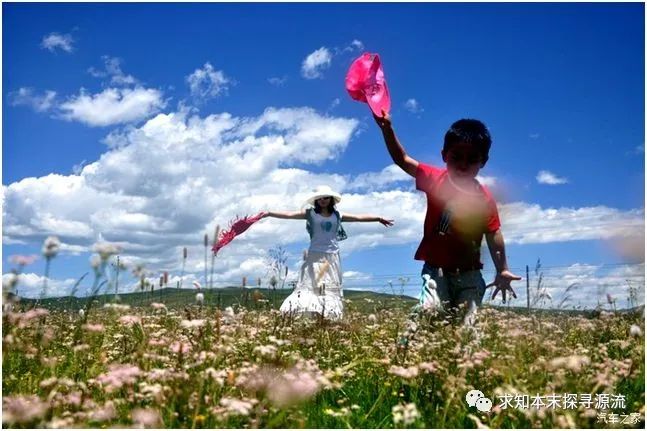
Since then, “Meng Mei Yi Qiu” has frequently appeared as an idiom to express strong and urgent desires, such as “To be promoted and become wealthy, is his dream.”
“To become an actor is her dream.”
“To become a pilot is something I have dreamed of since childhood.”
“After years of hard work, he finally got into the university he has dreamed of.”
“For many years, her dream has finally been realized today.”
All these “Meng Mei Yi Qiu” are synonymous with “thinking day and night,” and whether one can “obtain” it or not, relying solely on “dreaming” is not enough; it also requires relentless effort in reality. Whether it is a “business dream,” “wealth dream,” or “moderate prosperity dream,” or “great harmony dream,” it is all the same.
The original meaning of the character “Qiu” is “a fur coat,” but in the historical evolution of its meaning, it has extended in two directions: one is “to want to obtain,” leading to meanings such as to request, to beg, to covet; the other is “to find a way to obtain,” leading to meanings such as to seek, to demand, to pursue. Whether it is “to want to obtain” or “to find a way to obtain,” the highest realm is “Meng Mei Yi Qiu,” where “Qiu” is obtained, dreams come true; if “Qiu” is not obtained, dreams become empty. Nevertheless, “Qiu” is no longer “a fur coat” (裘), but a great driving force for progress in life.
(To be continued)
Related Links:
Tracing the Origins of Chinese Characters (200): Women’s Headscarves and Jade Belts—Discussing “Scarf” and “Belt” (Part One)
Tracing the Origins of Chinese Characters (200): Women’s Headscarves and Jade Belts—Discussing “Scarf” and “Belt” (Part Two)
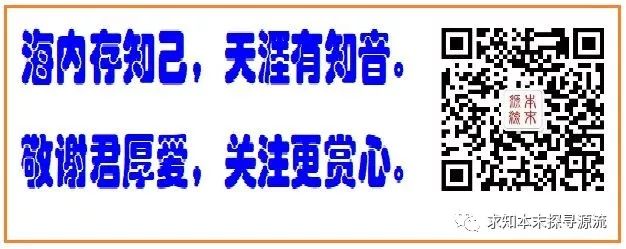
Long press the QR code on the right to follow us

